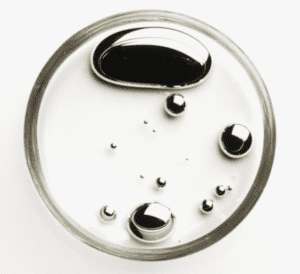
Edinburgh / Bali, 1 April 2022. – The United Nations adopted a provision to phase out the use of mercury as a satellite propellant by 2025 during the Fourth Meeting of the Conference of the Parties to the Minamata Convention on Mercury, Zero Mercury said. Public interest NGOs (non-governmental organizations) welcomed the ban.
Canada and Switzerland played vital roles in having the ban put in place. The decision was based on the fact that there exist technically and economically feasible mercury-free alternatives for satellite and spacecraft propulsion.
NASA and the space industry recognized the risks of mercury fuels in the 1970s but no regulation has been put into place. Mercury is cheap and easy to store but impossible to use safely. The environmental and human health implications of mercury falling back to Earth from low Earth orbit have not been evaluated. However, the Norwegian government estimates that 75% of this will be deposited in the world’s oceans, affecting marine life.
Mercury is a potent bio-accumulative neurotoxin thus the Minamata Convention on Mercury obligates its 137 parties to take steps to reduce its uses. The first signatory was the USA.





